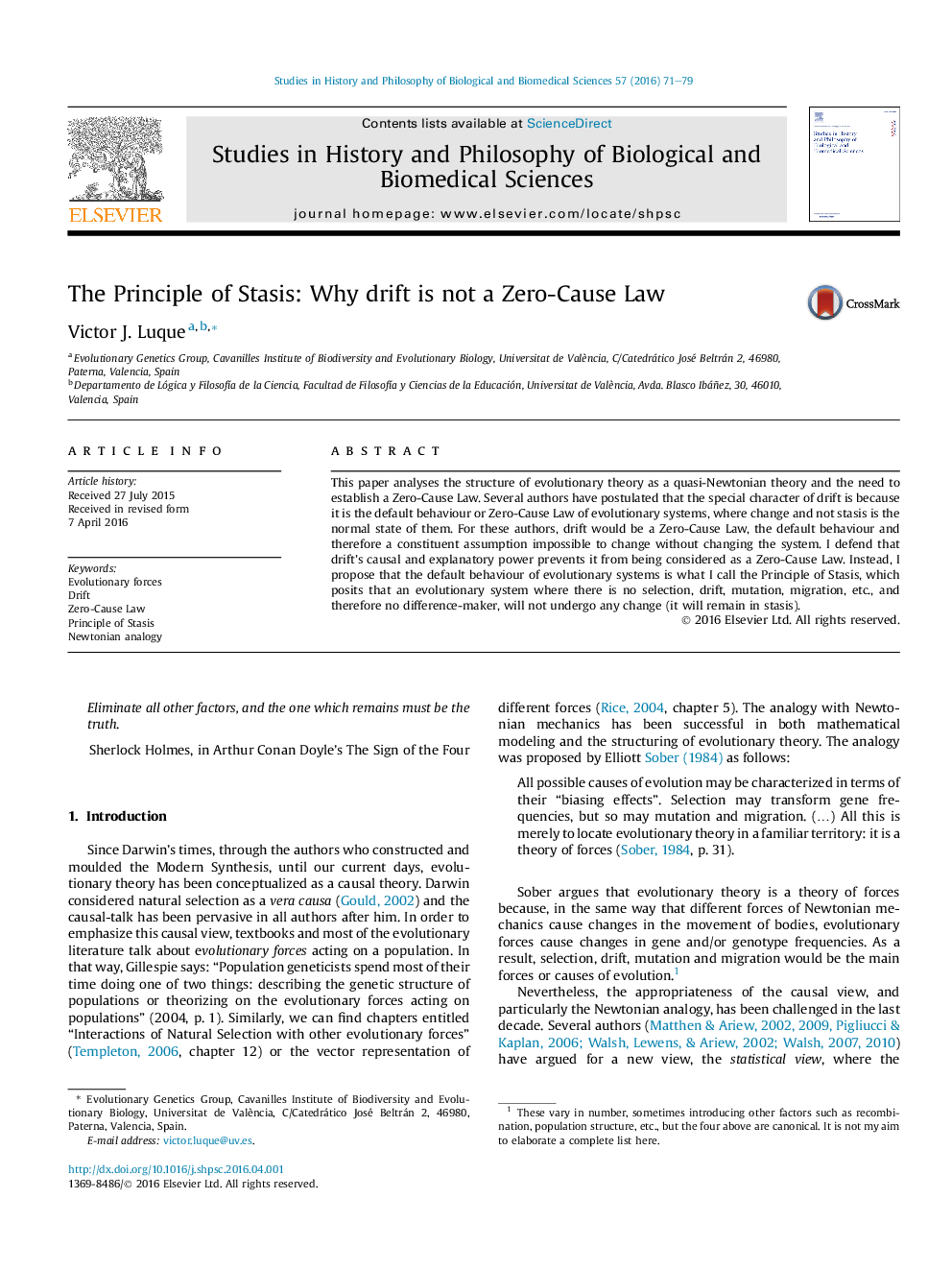| Article ID | Journal | Published Year | Pages | File Type |
|---|---|---|---|---|
| 7552240 | Studies in History and Philosophy of Science Part C: Studies in History and Philosophy of Biological and Biomedical Sciences | 2016 | 9 Pages |
Abstract
This paper analyses the structure of evolutionary theory as a quasi-Newtonian theory and the need to establish a Zero-Cause Law. Several authors have postulated that the special character of drift is because it is the default behaviour or Zero-Cause Law of evolutionary systems, where change and not stasis is the normal state of them. For these authors, drift would be a Zero-Cause Law, the default behaviour and therefore a constituent assumption impossible to change without changing the system. I defend that drift's causal and explanatory power prevents it from being considered as a Zero-Cause Law. Instead, I propose that the default behaviour of evolutionary systems is what I call the Principle of Stasis, which posits that an evolutionary system where there is no selection, drift, mutation, migration, etc., and therefore no difference-maker, will not undergo any change (it will remain in stasis).
Keywords
Related Topics
Life Sciences
Agricultural and Biological Sciences
Agricultural and Biological Sciences (General)
Authors
Victor J. Luque,
